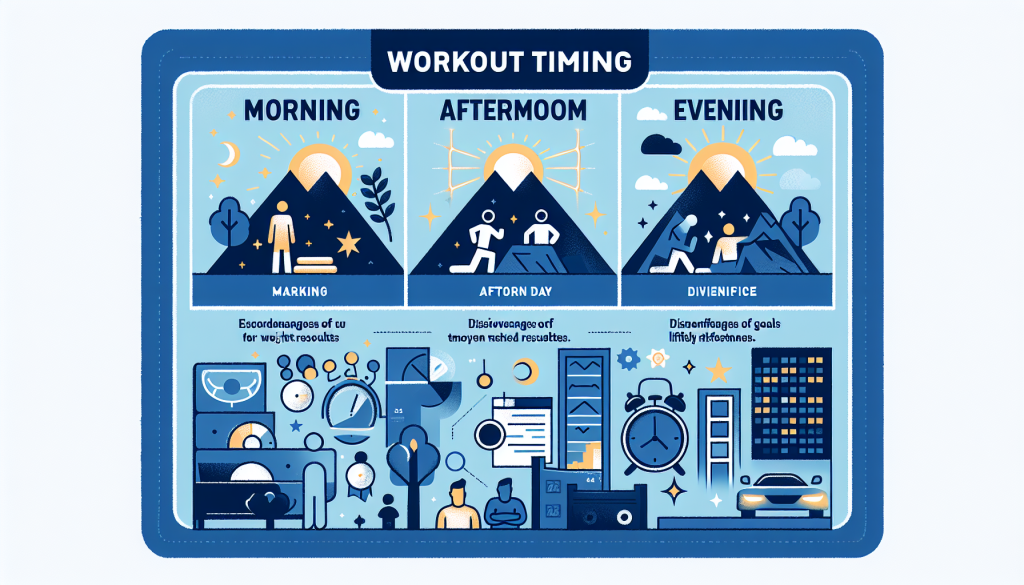If you’ve ever wondered about the best time of day to work out for maximum results, you’re not alone. Building six-pack abs and strengthening core muscles are common goals for many people, but knowing when to prioritize your exercise routine can make all the difference. Should you hit the gym bright and early or squeeze in a workout after work? In this article, we’ll explore the science behind timing your workouts and provide some insights to help you make the most of your fitness journey. So, whether you’re a morning person or a night owl, get ready to discover the optimal time to achieve your fitness goals.
Factors to Consider
When it comes to working out, there are several factors to consider in order to determine the best time of day for you to exercise. These factors are individual circadian rhythms, personal preference, and schedule and availability. By taking these factors into account, you can optimize your workout routine and achieve maximum results.
Individual Circadian Rhythms
Every person has their own unique circadian rhythm, which is the internal clock that regulates various bodily functions throughout the day. It is influenced by factors such as sleep patterns, hormone levels, and body temperature. Understanding your individual circadian rhythm can play a significant role in determining your ideal workout time.
Some individuals are naturally predisposed to be more alert and energetic in the morning, while others may find themselves more energized in the afternoon or evening. By paying attention to your body’s natural patterns, you can align your workout schedule with your circadian rhythm, allowing you to perform at your best.
Personal Preference
Personal preference is another crucial factor to consider when determining the best time to work out. Some people are early birds who prefer to start their day with a morning workout, while others are night owls who thrive on evening exercise sessions. It is essential to choose a time that aligns with your preferences to ensure long-term adherence to your fitness routine.
Consider your energy levels, motivation, and overall mood during different times of the day. Reflect on whether you enjoy the tranquility of early mornings or prefer the bustling atmosphere of evening workouts. By selecting a time that suits your personal preferences, you are more likely to stick with your exercise routine and reap the maximum benefits.
Schedule and Availability
Your schedule and availability play a significant role in determining the best workout time. It is essential to choose a time that fits seamlessly into your daily routine without causing undue stress or conflict with your other commitments. Consider your work schedule, family obligations, and any other activities that may impact your availability.
If you have a consistent daily routine, it may be easier to incorporate a workout at a specific time each day. However, if your schedule varies, it is important to be flexible and adaptable. Regardless of the time you choose, consistency is key. Aim for regular workouts and make adjustments as needed to ensure you prioritize your health and fitness.
Morning Workouts
Morning workouts are a popular choice for many individuals, and for a good reason. They offer several benefits that can set the tone for the rest of your day.
Increased Energy Levels
Exercising in the morning can result in increased energy levels throughout the day. When you engage in physical activity early in the morning, it jumpstarts your metabolism and stimulates the production of endorphins, which are known as “feel-good” hormones. This boost in energy can provide a natural high and help you feel more alert and focused throughout the day.
Improved Focus and Mental Clarity
Starting your day with a workout can enhance your mental clarity and focus. Exercise increases blood flow to the brain, promoting the release of chemicals that improve cognitive function. By working out in the morning, you can experience improved productivity and mental sharpness, which can be beneficial for tasks at work or school.
Boosted Metabolism Throughout the Day
Morning workouts can boost your metabolism, leading to increased calorie burn throughout the day. When you exercise in the morning, your body continues to burn calories at an elevated rate even after you have finished your workout. This results in prolonged fat burning and can contribute to weight loss or weight maintenance goals.
Better Sleep Patterns
Believe it or not, exercising in the morning can actually improve your sleep quality. Regular exercise has been shown to help regulate sleep patterns and promote deeper, more restorative sleep. By completing your workout in the morning, you give your body ample time to wind down and prepare for a good night’s sleep.
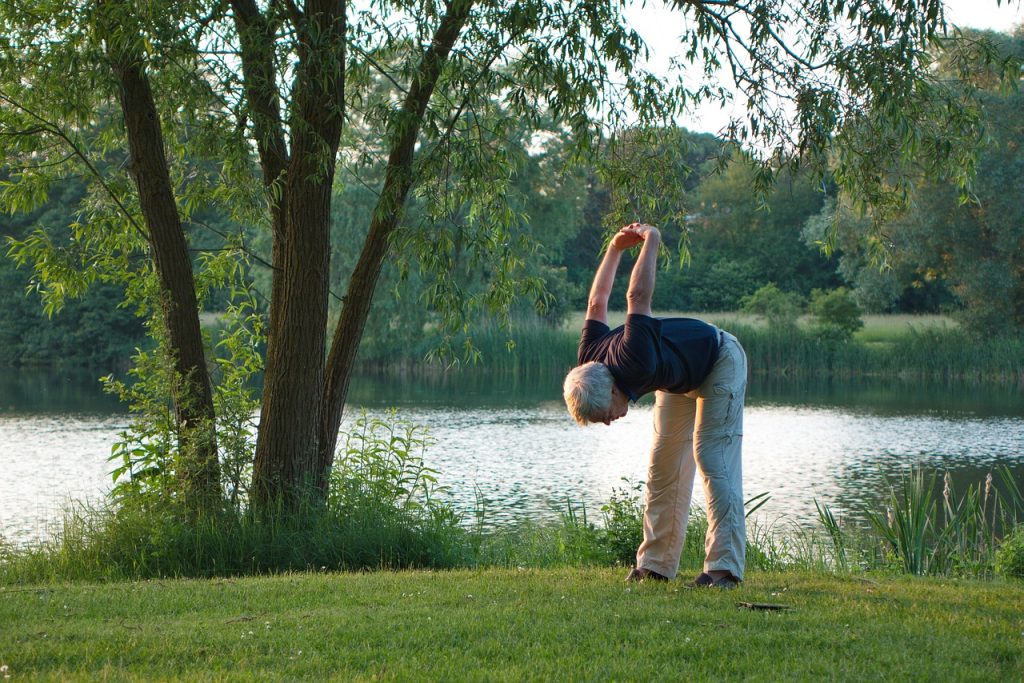
Afternoon Workouts
For individuals who find their energy and motivation peak later in the day, afternoon workouts can be an ideal choice. There are several advantages to exercising during this time.
Optimal Body Temperature
In the afternoon, your body temperature tends to be at its highest, making it the ideal time for physical performance. Warmer muscles and joints result in increased flexibility, which can help reduce the risk of injury during your workout. Additionally, with your body already warmed up, you may find it easier to get into the flow of your exercise routine.
Improved Physical Performance
As your body temperature rises throughout the day, so does your physical performance. This means that during afternoon workouts, you may be able to push yourself harder and achieve greater results. Your muscles are more warmed up, allowing you to lift heavier weights, run faster, or perform more challenging exercises.
Increased Muscular Strength
Research has shown that muscular strength tends to be at its peak in the afternoon. This is because muscle fibers and connective tissues are more pliable, which can result in improved muscle contractions and enhanced overall strength. By working out in the afternoon, you can maximize your gains in muscle mass and strength.
Enhanced Endurance
In the afternoon, your body has had time to fuel and hydrate adequately throughout the day. This can lead to improved endurance, as your body has sufficient glycogen stores to power you through a workout. With enhanced endurance, you can sustain higher-intensity exercise for longer periods, leading to more significant fitness improvements over time.
Evening Workouts
If you are someone who prefers to wind down in the evening, exercising during this time may be the perfect fit for you. Evening workouts offer their own set of benefits.
Increased Muscle Flexibility
By working out in the evening, you give your muscles ample time to loosen up and become more flexible. Increased muscle flexibility can improve your range of motion, making it easier to perform exercises with proper form and prevent injuries. Additionally, improved flexibility can enhance athletic performance in sports that require agility and quick movements.
Lower Injury Risk
Working out in the evening can potentially lower the risk of injury. Throughout the day, your body has had time to get rid of any residual stiffness or tightness that may have accumulated while you were sitting, working, or engaging in other activities. The increased muscle flexibility in the evening can reduce the strain and stress on your joints and muscles, minimizing the chances of injury.
Stress Relief and Relaxation
Evening workouts can serve as a great stress relief after a long day. Exercise stimulates the release of endorphins, which act as natural mood enhancers and help reduce stress levels. By engaging in a workout routine in the evening, you can alleviate the mental and emotional strain accumulated throughout the day, promoting relaxation and a sense of well-being.
Easier Transition to Sleeping
Contrary to popular belief, exercising in the evening does not necessarily disrupt sleep patterns. In fact, it can help prepare your body for a more restful night’s sleep. As your body temperature rises during exercise, it subsequently cools down afterward, signaling your body that it is time to wind down. This can lead to an easier transition into sleep, promoting a more refreshing and rejuvenating rest.
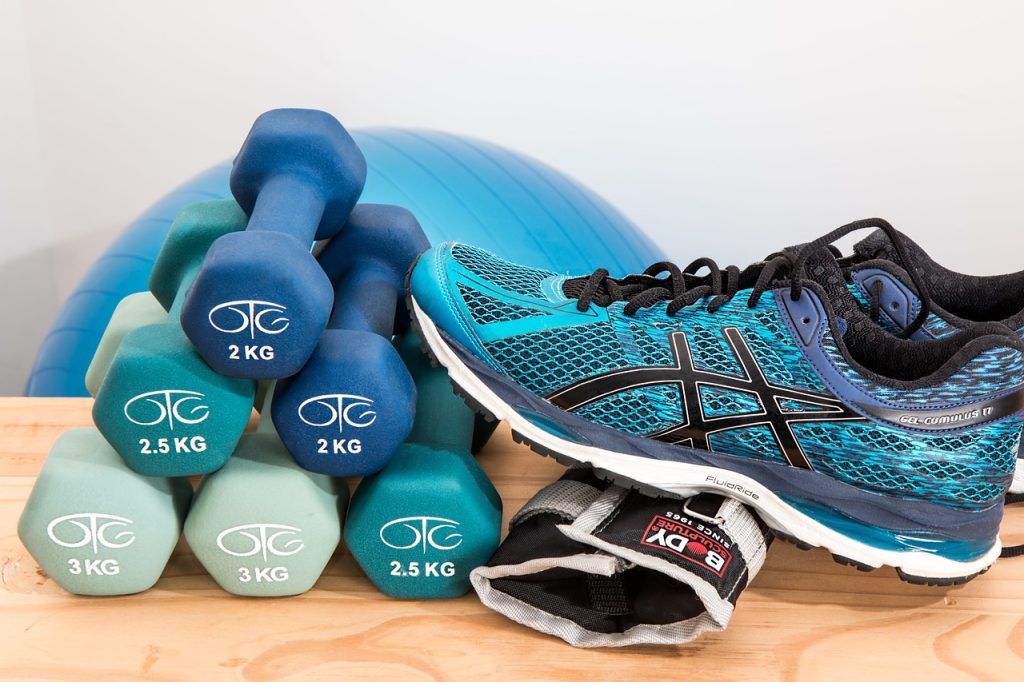
Consistency and Routine
When it comes to achieving fitness goals, consistency and routine play a crucial role. Here are some key factors to consider for establishing a consistent workout routine that fits your lifestyle.
Creating a Regular Exercise Habit
To make exercise a regular part of your life, it is essential to create a habit around it. This involves committing to a specific time slot for your workouts and sticking to it consistently. By establishing a routine, your body and mind can adapt to the regular physical activity, making it easier to stay motivated and maintain progress.
Finding a Time That Works Best for You
While there are various factors to consider when choosing a workout time, ultimately, it should align with what works best for you personally. Reflect on your energy levels, natural rhythms, and overall preferences. Experiment with different times of the day to see what feels most comfortable and enjoyable.
Some individuals may find that morning workouts set a positive tone for the rest of their day, while others may thrive on the energy and stress relief provided by evening workouts. By identifying your optimal workout time, you can enhance your performance and make exercise an integral part of your daily routine.
Being Flexible with Changing Schedules
Life is full of unexpected changes and challenges, and this can impact your ability to adhere to a specific workout schedule. It is essential to be flexible and adaptable, especially if your schedule undergoes frequent changes. Consider alternative workout times or explore different exercise options during periods of schedule disruptions.
While consistency is key for long-term progress, it is equally important to be forgiving and understanding of yourself during times when sticking to a rigid routine becomes challenging. The goal is to maintain an active lifestyle and prioritize your health, even if it means adjusting your workout schedule occasionally.
Effect on Performance and Results
The timing of your workouts can have varying effects on different individuals, and it is important to pay attention to your body’s response. Here are some factors to consider regarding performance and results.
Varying Effect on Different Individuals
Just as people’s preferences and circadian rhythms differ, so too can the effect of workout timing on their performance and results. Some individuals may find that they perform best and achieve the most significant results when working out in the morning, while others may experience the same effects with afternoon or evening workouts.
It is essential to listen to your body and pay attention to how you feel during and after your workouts. This can help you determine the optimal time for you personally to maximize performance and results.
Adapting to Workout Timing
If you have been consistently exercising at a particular time and are considering shifting to a different time slot, it is important to allow your body time to adapt. Your body may need a period of adjustment to synchronize its internal clock with the new workout schedule.
Be patient with yourself and give your body the time it needs to adapt and perform at its best. Experiment with different workout times while keeping in mind that consistency and dedication are key components to achieving long-term results.
Listening to Your Body’s Response
Your body is a remarkable source of feedback, and it is crucial to listen to its cues. Pay attention to how your body feels during different workout times and whether you experience improved energy levels, mental focus, or physical performance.
If you notice that your body responds better to a specific workout time, embrace it and design your routine around it. Ultimately, the goal is to find a workout schedule that aligns with your body’s natural rhythms and allows you to achieve optimal performance and results.
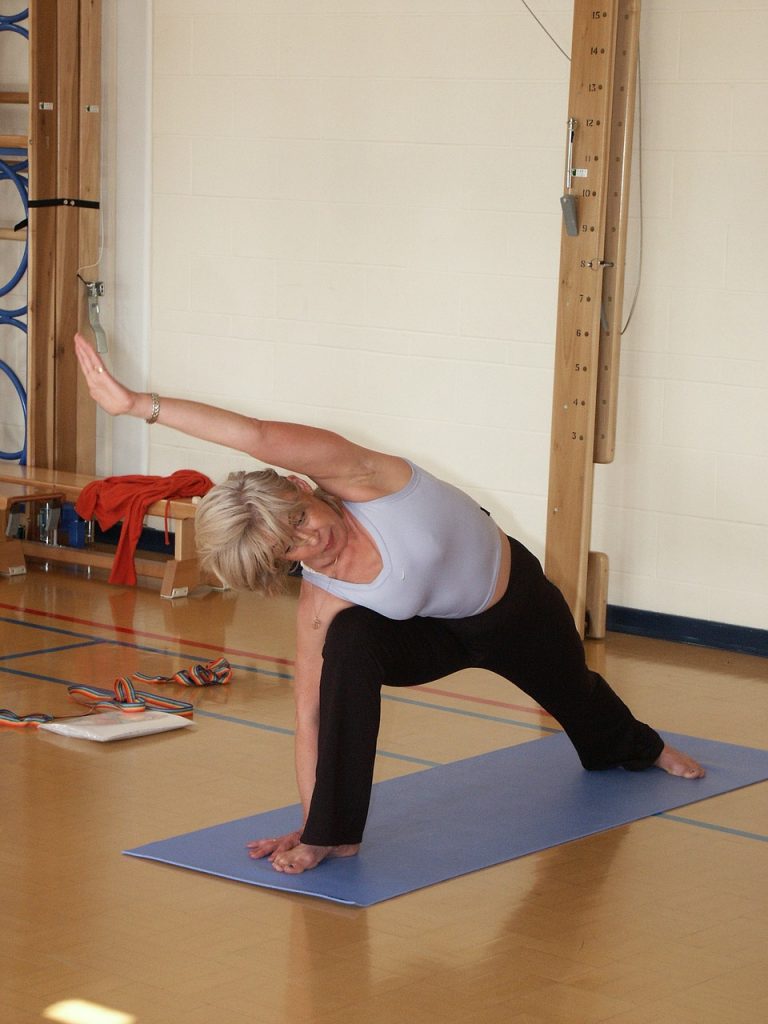
Workout Type and Intensity
The type and intensity of your workouts also play a significant role in your overall fitness journey. Here are some considerations for different workout types.
Cardiovascular Exercises
Cardiovascular exercises, such as running, cycling, or swimming, are great for improving cardiovascular health, endurance, and calorie burn. These activities can be performed at any time of day and can be adjusted to suit your individual fitness level and goals. If you prefer high-intensity cardio sessions, morning workouts can help energize your day and kickstart your metabolism.
Strength Training
Strength training exercises, including weightlifting and resistance training, help build muscle mass, increase strength, and boost metabolism. The best time to engage in strength training can vary depending on your personal preference and energy levels. Afternoon or evening workouts may be more suitable for activities that require high muscle engagement and intense physical effort.
High-Intensity Interval Training
High-Intensity Interval Training (HIIT) involves short bursts of intense exercise followed by periods of rest or lower-intensity activity. HIIT workouts can be performed at any time of day, depending on personal preference. Morning HIIT sessions can provide an energy boost for the day, while evening sessions can help relieve stress and promote relaxation.
Flexibility and Stretching
Flexibility exercises and stretching routines can be performed at any time, as they do not require the same level of energy and intensity as other types of workouts. Incorporating stretching exercises into your morning routine can help wake up your body and improve overall flexibility. Evening stretching can help relax muscles and promote a sense of calm before bed.
Fueling the Body
In addition to considering the timing of your workouts, it is essential to fuel your body properly to optimize performance and recovery. Here are some factors to consider regarding pre and post-workout nutrition.
Pre-Workout Nutrition
Eating a balanced meal or snack before your workout can provide the fuel your body needs for optimal performance. Aim to consume carbohydrates for energy, along with some protein for muscle repair and recovery. The timing of your pre-workout meal or snack may vary based on personal preference and digestion. Some individuals may prefer to eat a full meal 2-3 hours before exercise, while others may opt for a smaller snack 30-60 minutes before.
Post-Workout Nutrition
After your workout, it is important to replenish your body with the necessary nutrients for muscle repair and recovery. Consuming a combination of carbohydrates and protein within 30-60 minutes after your workout can help optimize recovery and enhance muscle growth. This can be in the form of a protein shake, a balanced meal, or a snack, depending on your preference and nutritional needs.
Timing of Meals and Snacks
In addition to pre and post-workout nutrition, considering the timing of your other meals and snacks throughout the day is important. A well-balanced diet that includes protein, carbohydrates, and healthy fats can provide sustained energy and support your fitness goals. Experiment with meal and snack timings to find a routine that keeps you energized and satisfied during your workouts.
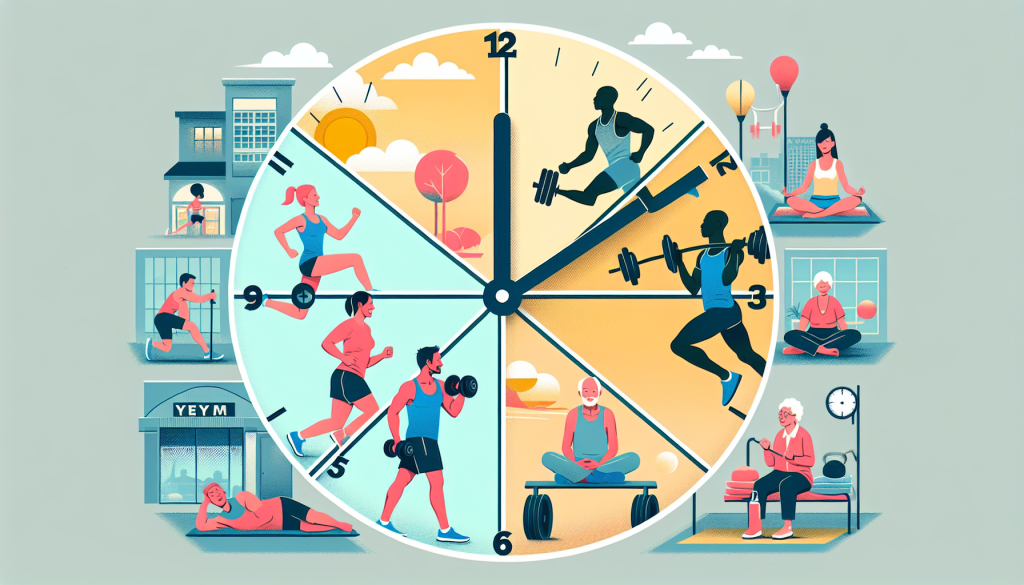
Balancing Personal Commitments
Balancing personal commitments can sometimes pose challenges when it comes to maintaining a consistent workout routine. Here are some considerations for navigating work, family obligations, and scheduling challenges.
Work and Family Obligations
Work and family obligations are important aspects of life that may impact your ability to schedule and prioritize workouts. It is crucial to find a balancing point that allows you to engage in regular physical activity while meeting your responsibilities. Communicate with your colleagues, family members, or partners about your commitment to health and fitness, and work together to find time slots that are mutually convenient.
Prioritizing Health and Fitness
Making health and fitness a priority is key to maintaining a consistent workout routine. Evaluate your daily schedule and identify areas where you can make small adjustments to accommodate exercise. This may involve waking up earlier, scheduling breaks during the workday for quick workouts, or reallocating time spent on other activities. By prioritizing your health and well-being, you create a foundation for long-term success.
Scheduling Challenges
Life is full of unforeseen circumstances and scheduling challenges. It is crucial to be adaptable and flexible when faced with unexpected changes. If your regular workout time is no longer feasible due to external factors, explore alternative options without compromising your commitment to physical activity. Incorporate short, intense workouts or break longer sessions into shorter, more manageable chunks throughout the day.
Consulting a Professional
If you are new to working out or unsure about the best approach for your individual circumstances, consulting a fitness professional can provide valuable guidance and recommendations. Here are some considerations when seeking advice.
Seeking Advice from a Fitness Trainer
Fitness trainers or personal trainers are experts in exercise programming, technique, and customization. They can assess your fitness level, discuss your goals, and design a tailored workout plan that takes into account factors such as your preferred workout time, exercise preferences, and individual needs.
By seeking advice from a fitness trainer, you can receive personalized guidance, ensure proper form and technique, and maximize your workout potential.
Considering Individual Health Conditions
Individual health conditions can impact the timing and intensity of your workouts. If you have any pre-existing health conditions or concerns, it is crucial to consult with a healthcare professional before starting or modifying an exercise routine. They can provide specific recommendations based on your health history and any potential contraindications.
Personalized Guidance and Recommendations
Working with a fitness professional can provide you with personalized guidance and recommendations that align with your goals and individual circumstances. They can help you navigate the different factors to consider when determining the best workout time and provide professional insights that can elevate your fitness journey.
Remember, the information provided in this article serves as a general guide, and it is important to listen to your body and seek professional advice when necessary. By considering factors such as individual circadian rhythms, personal preference, and schedule availability, you can establish a workout routine that works best for you. Keep in mind that consistency, proper fueling, and a balanced approach are key components to achieving maximum results and long-term success.
